15 Anthony Bourdain Japan Quotes That Will Make You Laugh, Cry, and Hungry
Anthony Bourdain was more than just a celebrity chef and author. He was a storyteller, a traveler, a cultural explorer, and a lover of life.
He had a special connection with Japan, a country that he visited many times and admired deeply.
He once said, “If I had to eat only in one city for the rest of my life, Tokyo would be it.”
But his love for Japan was not only about the food. It was also about the people, the history, the art, the nature, and the spirit of the place.
He was fascinated by the contrast between the ancient and the modern, the traditional and the innovative, the serene and the chaotic.
He was moved by the beauty and the tragedy, the joy and the sorrow, the simplicity and the complexity of Japan.
He was inspired by the way the Japanese embraced and celebrated the seasons, the rituals, and the moments.
In this article, we will share 15 quotes from Anthony Bourdain that will make you laugh, cry, and hungry.
These quotes will show you how much he loved Japan, and how much Japan loved him back.
They will also give you a glimpse of the magic and the mystery of this amazing country, and maybe even inspire you to visit it yourself.
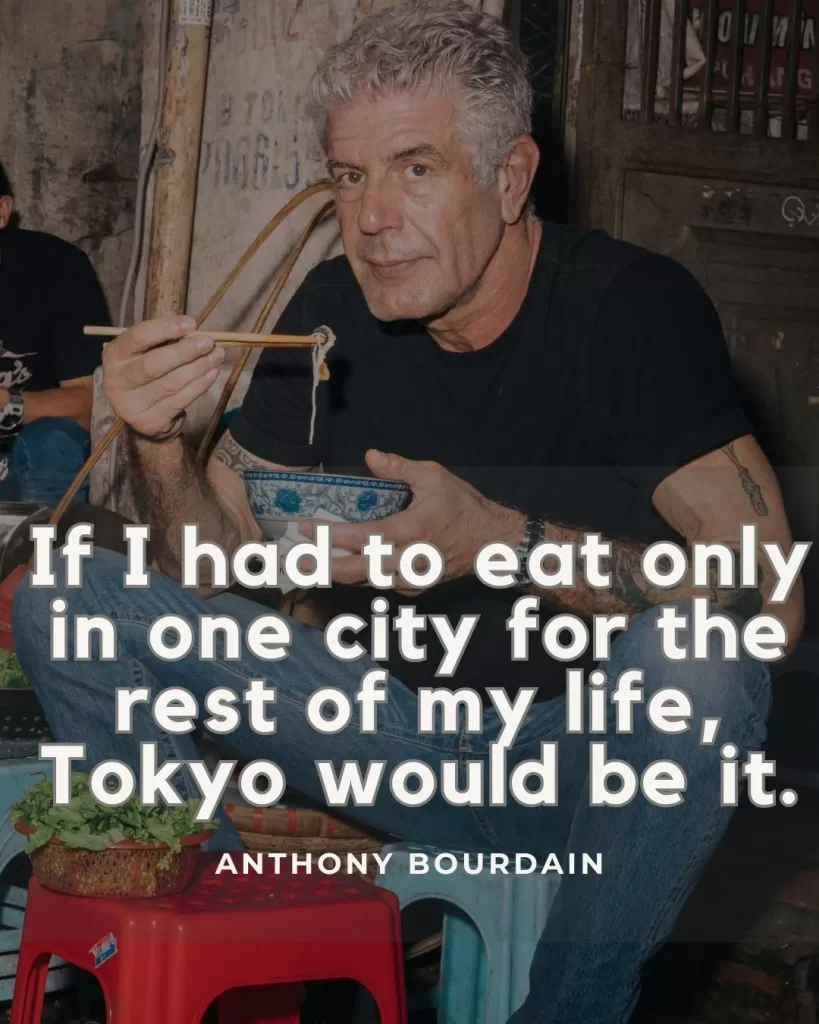
This quote underscores his profound admiration for Tokyo’s culinary scene. It highlights the city’s diverse, high-quality food experiences, making it a gastronomic paradise in Bourdain’s view.
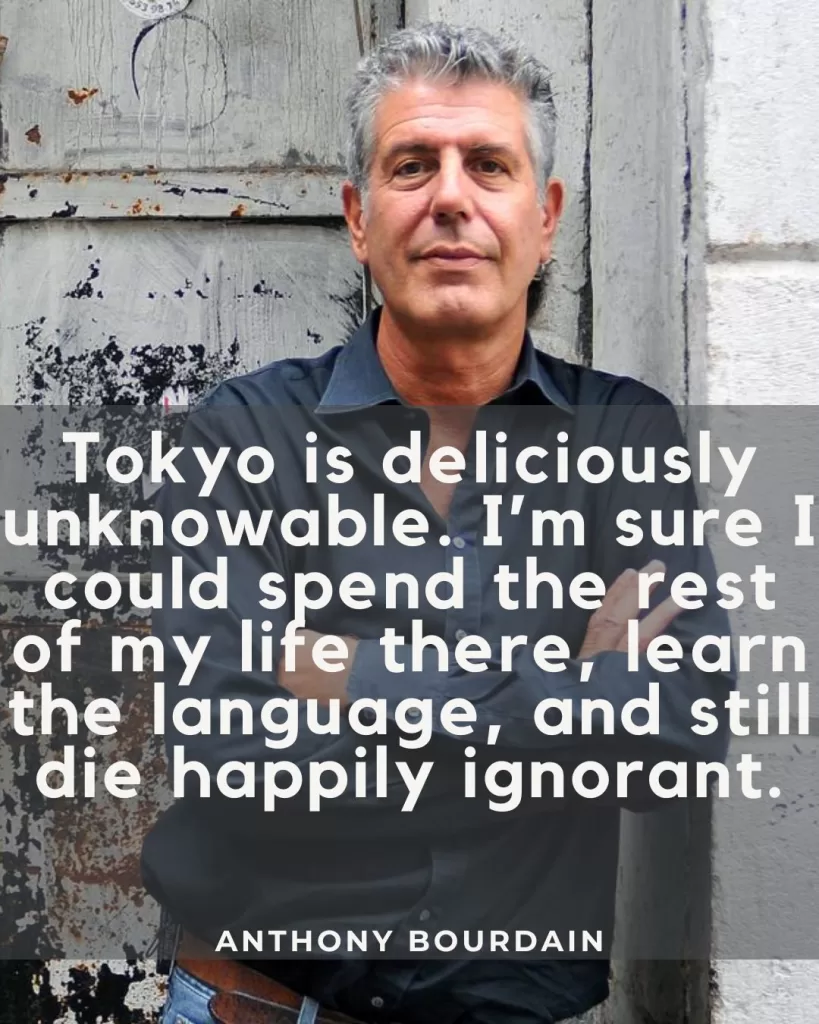
This quote expressed his deep admiration for Tokyo and its enigmatic appeal. He felt he could happily spend the rest of his life there learning the language while remaining blissfully ignorant of other aspects, showcasing his respect and wonder for the city’s intricate culture.
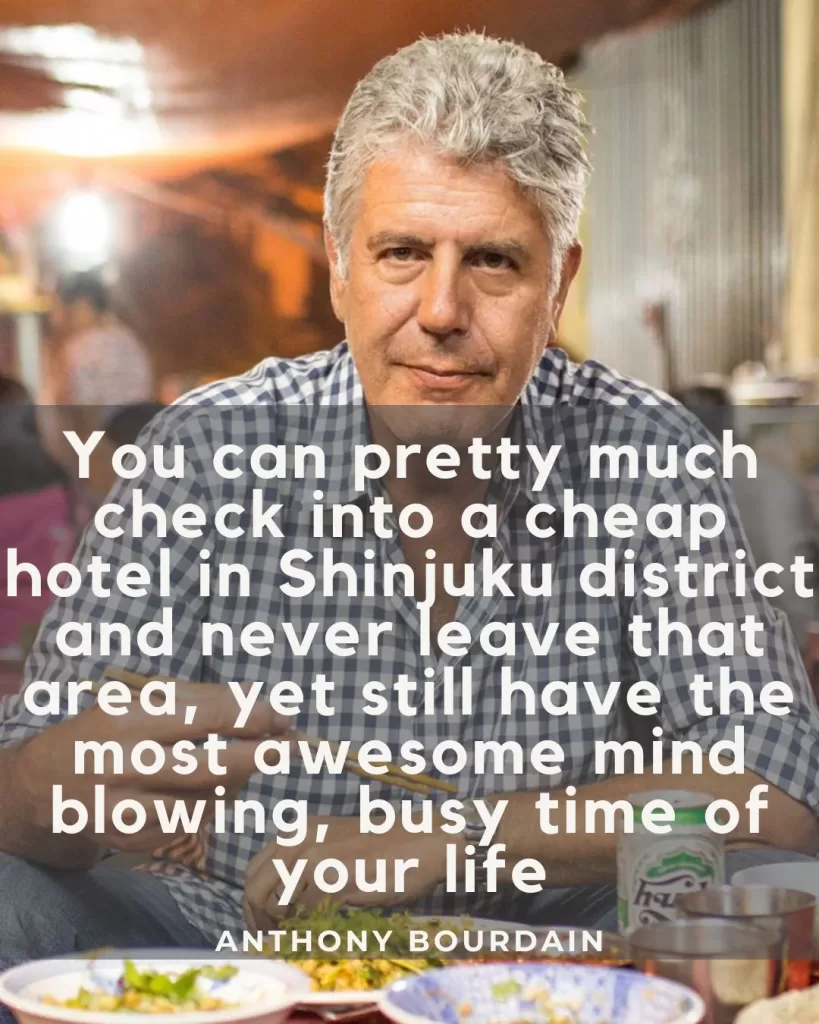
This quote humorously captures Bourdain’s fascination with Tokyo’s vibrant Shinjuku district, suggesting that one could have an immensely fulfilling time by simply residing in an affordable hotel there and exploring that pocket of the city without ever leaving. His words highlight the area’s boundless energy and ability to captivate visitors.
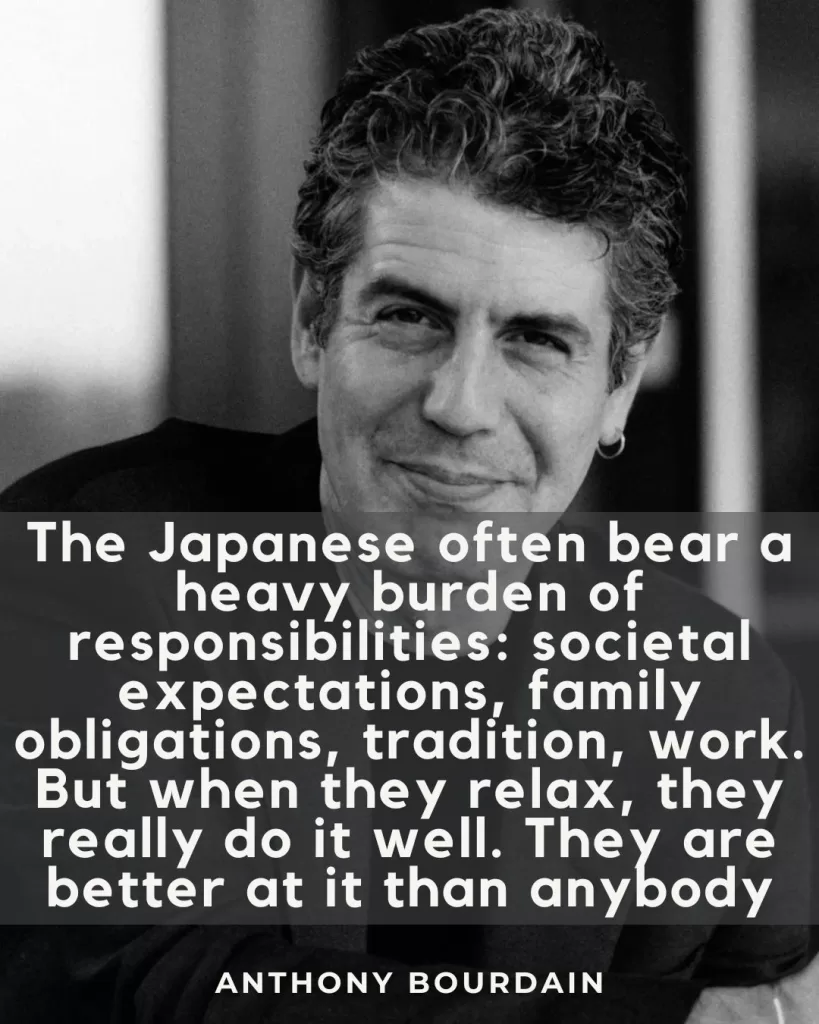
Bourdain insightfully observes the dualities within Japanese society, acknowledging the heavy societal and familial expectations placed upon individuals, while also praising the Japanese people’s ability to truly embrace leisure and relaxation when the opportunity arises. He admires their skill at finding balance amid life’s demands.
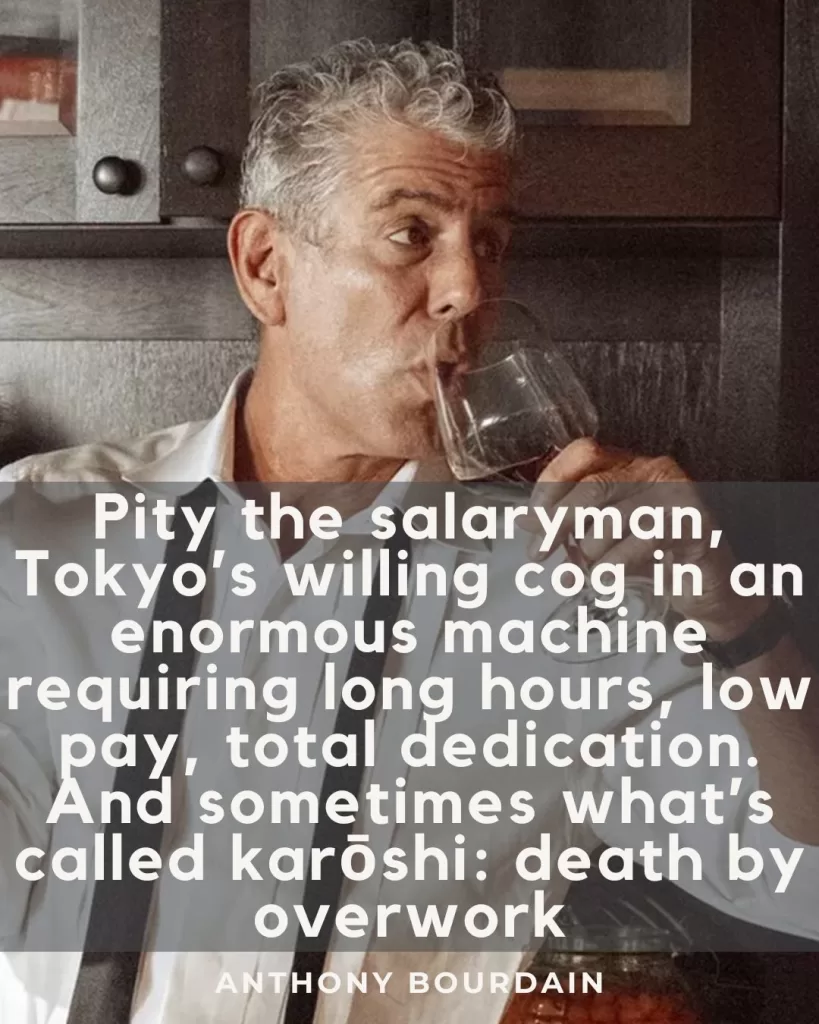
With this quote, Bourdain shines a light on the intense work culture in Tokyo, expressing sympathy for the city’s corporate workforce, dubbed the “salaryman,” who face grueling hours, low pay, and total devotion to their jobs – sometimes to the extreme of karoshi, the phenomenon of death by overwork. His words highlight a darker side of Tokyo’s corporate grind.
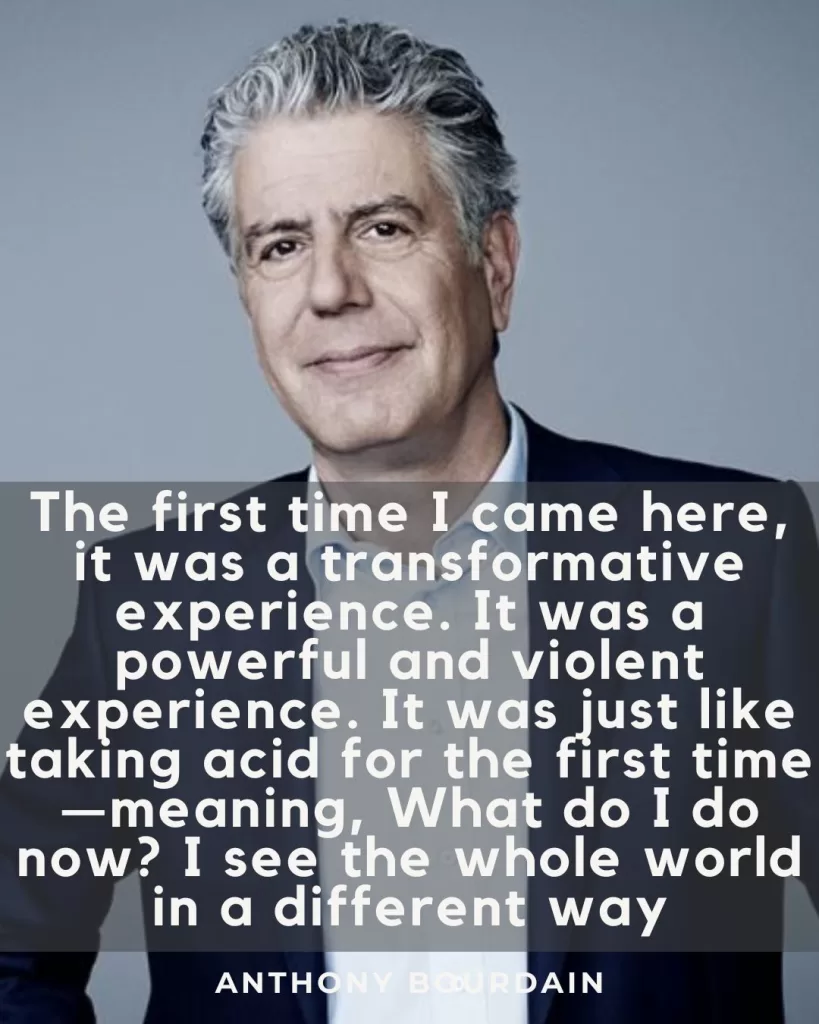
Bourdain vividly conveys the profound impact his first visit to Tokyo had on him, likening it to a transformative, almost psychedelic experience that violently shifted his perspective on the world. The quote captures his sense of enlightenment and having his worldview fundamentally reshaped by the sights, sounds and culture of the Japanese capital.
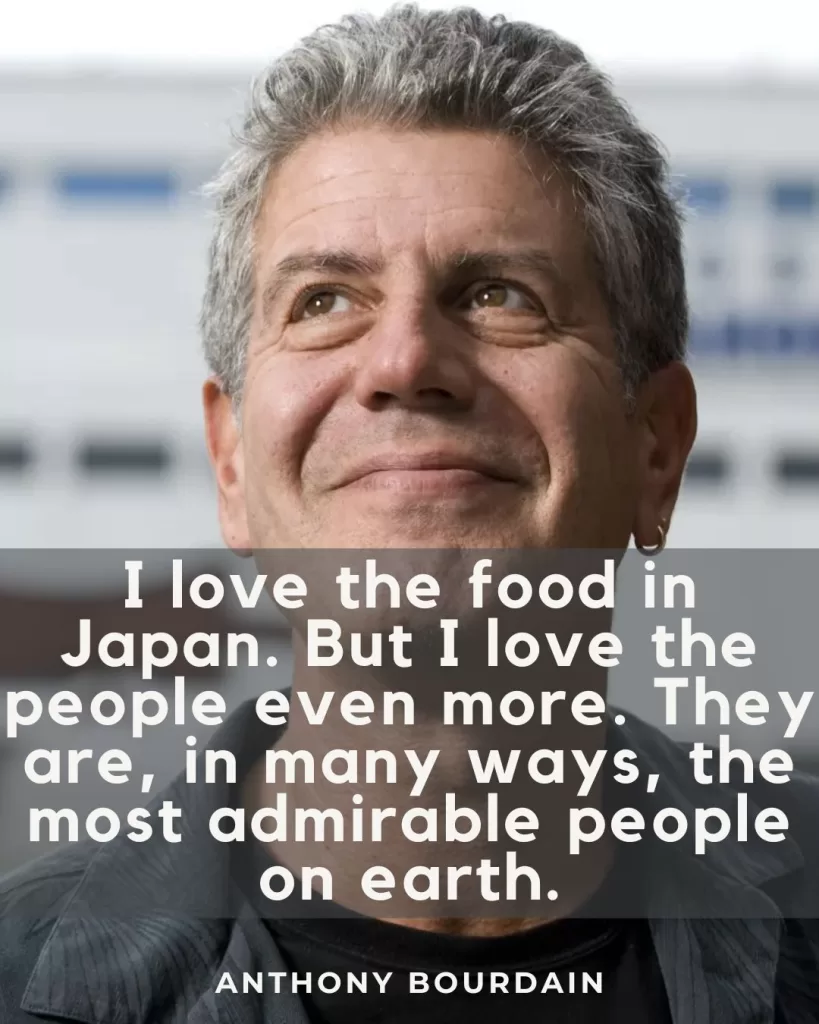
This quote beautifully captures Anthony Bourdain’s deep appreciation for the Japanese people and their admirable qualities. He expresses his love for not only the food but the people themselves, whom he considers among the most admirable on earth, showing his profound respect for Japanese culture.
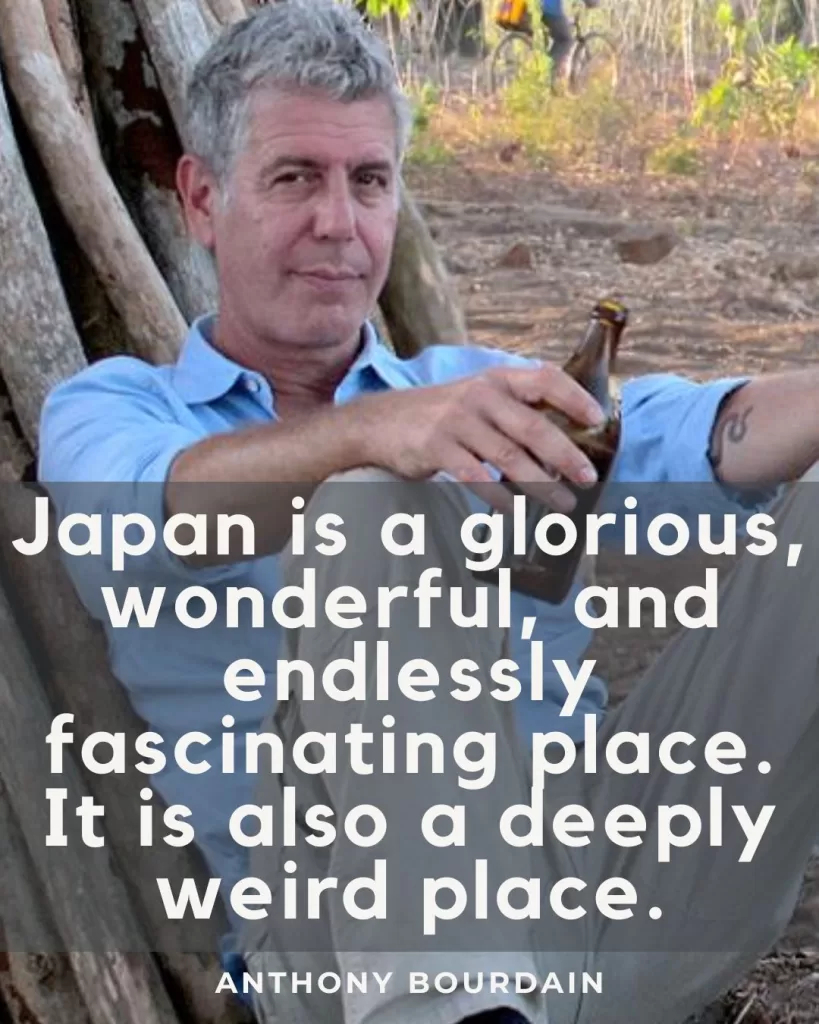
Here, Bourdain describes Japan as a glorious, wonderful, and endlessly fascinating place, while also acknowledging its deeply weird and unconventional side. This quote reflects his nuanced understanding and appreciation of Japan’s unique blend of cultural wonders and quirky idiosyncrasies.
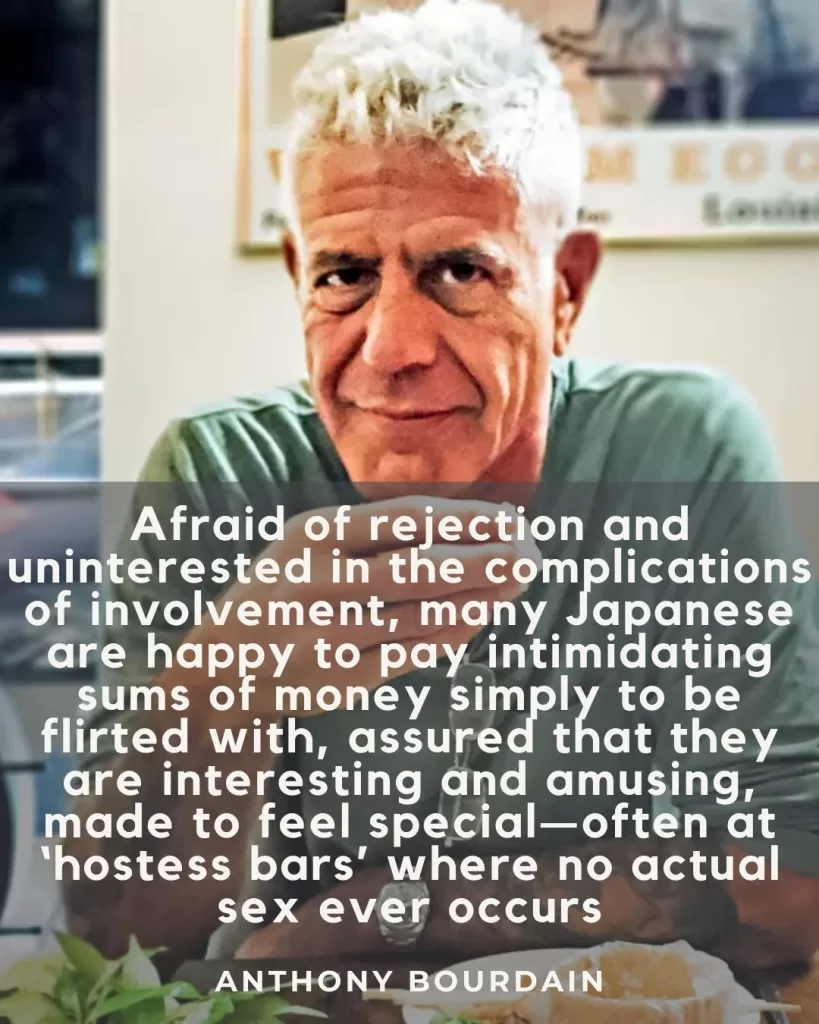
This quote sheds light on an intriguing aspect of Japanese culture, where some individuals seek out paid companionship and attention at hostess bars without any sexual involvement. Bourdain’s observation highlights the complexities of societal norms and the human desire for connection, even if it comes at a financial cost.
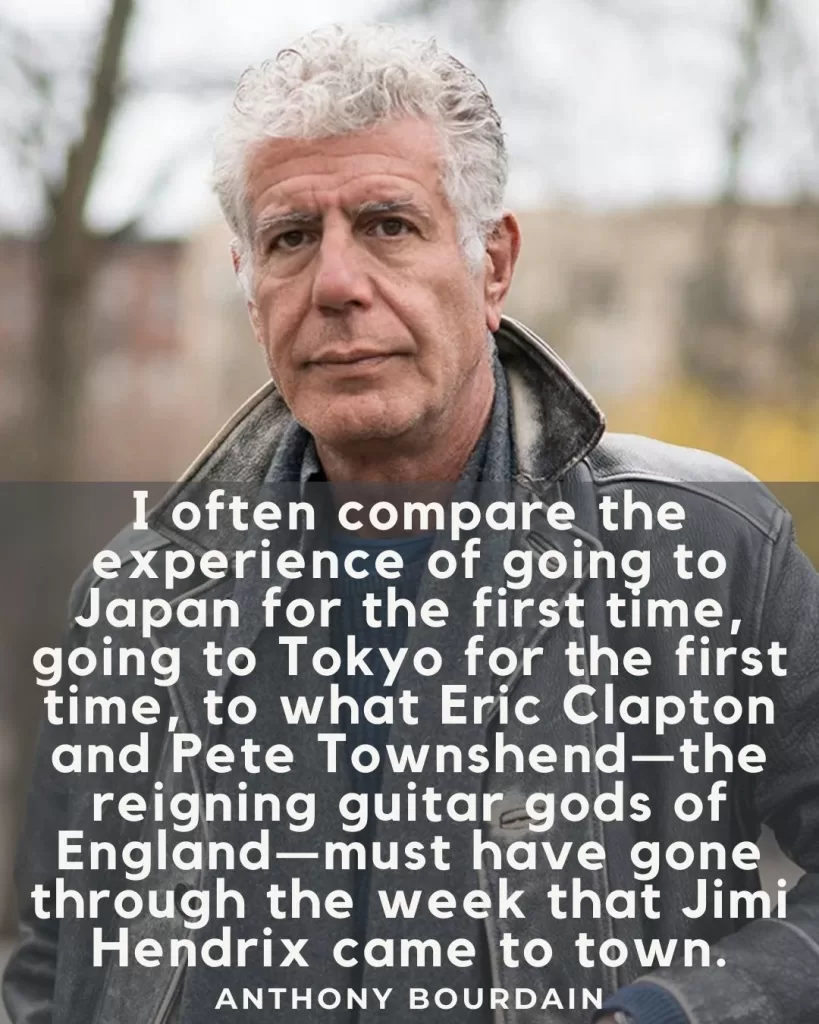
Bourdain’s comparison of first-time visitors to Tokyo to the experience of rock legends like Eric Clapton and Pete Townshend encountering Jimi Hendrix is a vivid and evocative analogy. It captures the sense of awe and culture shock that newcomers may feel when immersed in the vibrant and overwhelming energy of Tokyo.
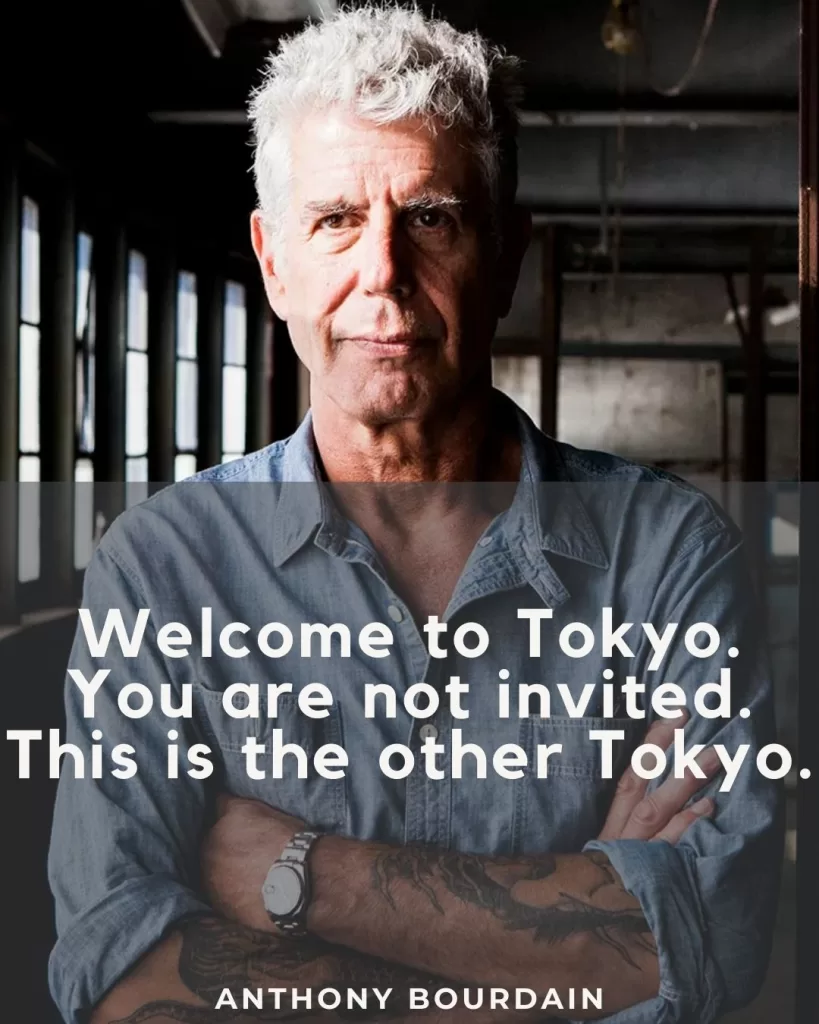
This quote has a somewhat ominous and foreboding tone, suggesting that there is another side to Tokyo that is uninviting and hidden from the typical tourist experience. Bourdain seems to be hinting at the city’s darker underbelly, inviting the reader to explore the unconventional and lesser-known aspects of the metropolis.
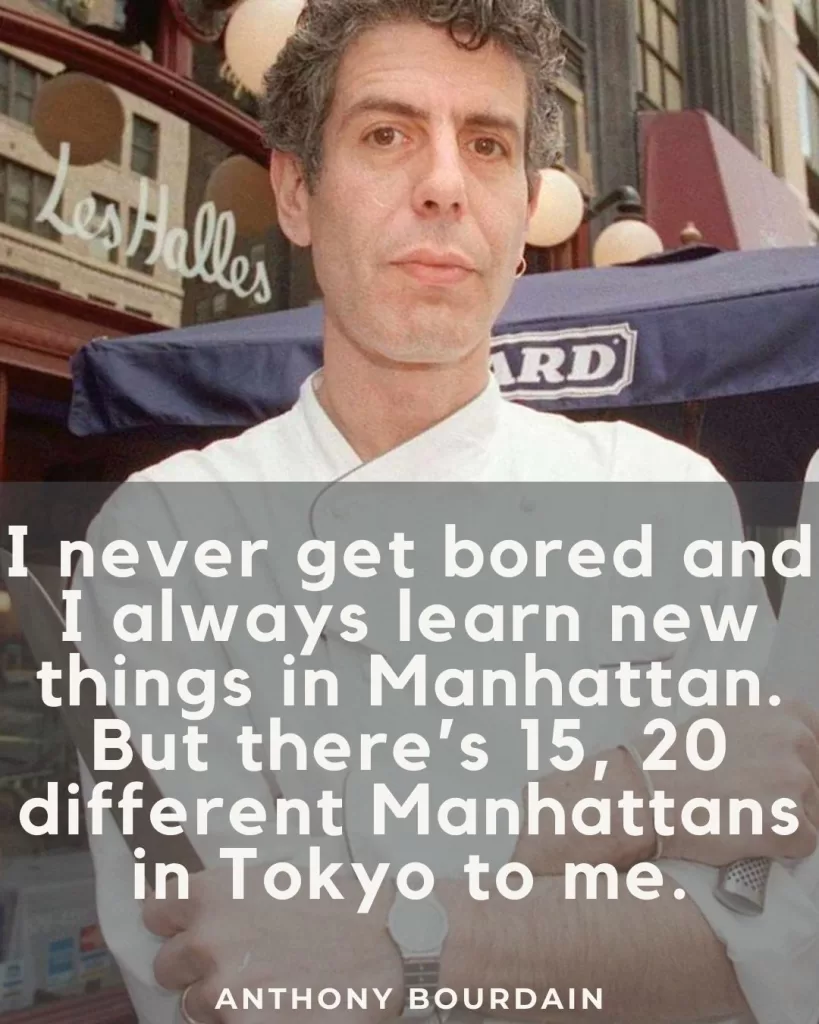
The quote highlights Bourdain’s appreciation for the diversity and novelty that Manhattan offers, while also suggesting that Tokyo provides an even greater variety of experiences to be explored. It reflects his insatiable curiosity and openness to immersing himself in different cultures.
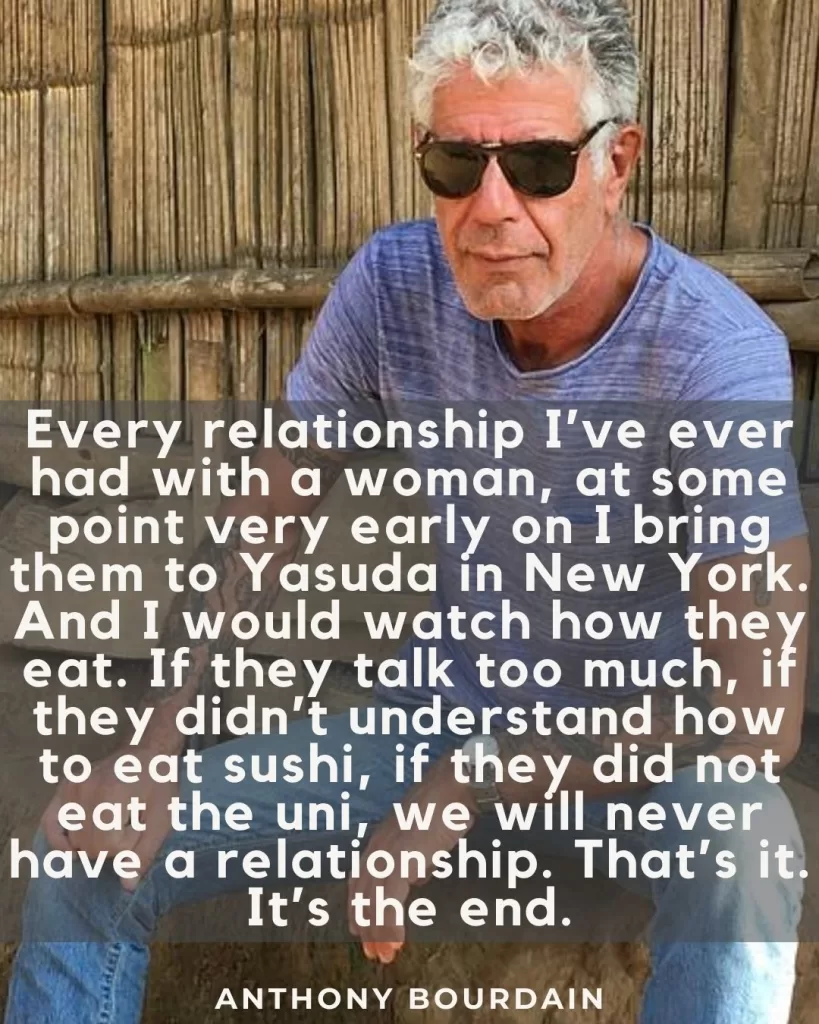
In this provocative quote, Bourdain shares his unconventional approach to evaluating potential romantic partners based on their ability to appreciate and savor the culinary experience of eating sushi. It suggests that compatibility with his lifestyle and culinary passions was a non-negotiable requirement for him.
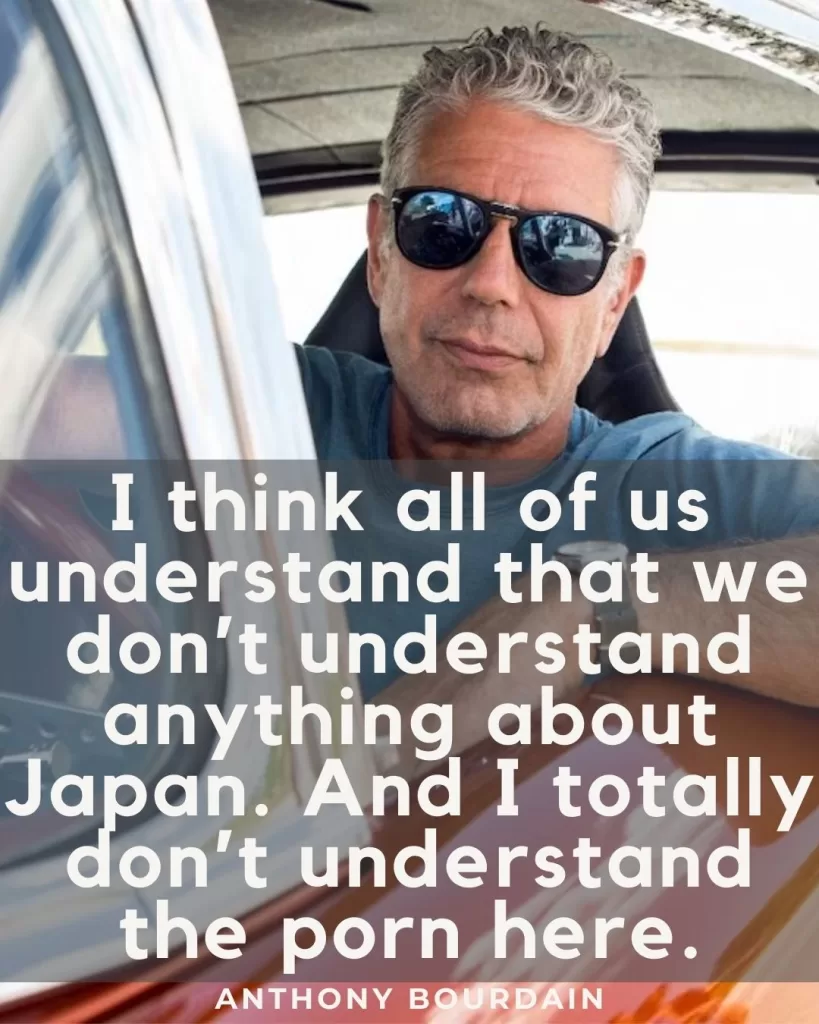
This quote encapsulates Bourdain’s perspective on the Western lack of true understanding of Japanese culture. Despite his extensive travels, he acknowledges the depth of Japanese society and humbly admits his inability to fully comprehend certain aspects, including the country’s unique approach to adult entertainment.
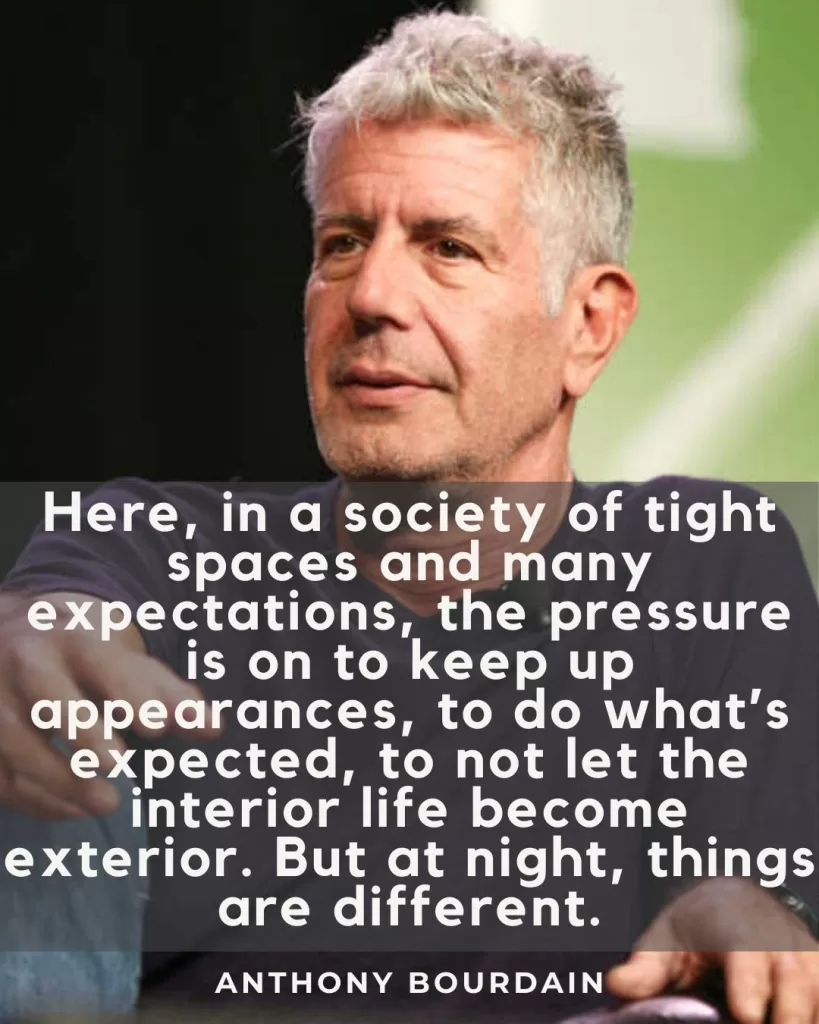
Bourdain’s quote here touches on the societal pressures and expectations that exist in Japan, particularly the emphasis on maintaining appearances and conforming to cultural norms. However, he hints at a different side of Japanese society that emerges at night, perhaps suggesting a more liberated or unconventional aspect that contrasts with the daytime facade.